12 Terrible Movie Adaptations That Should Never Have Been Made
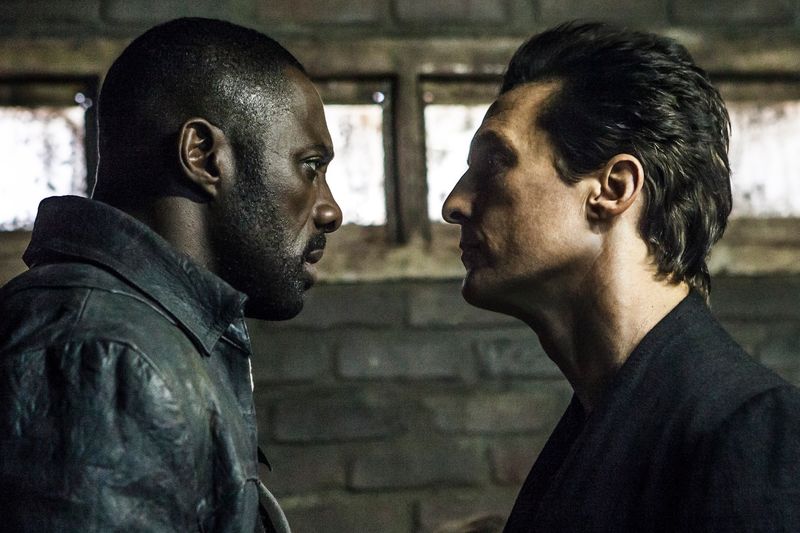
Hollywood loves turning popular books, comics, and games into movies, but sometimes the results are truly awful. When filmmakers miss what made the original material special, fans end up with disappointing experiences that tarnish beloved stories. From mangled plotlines to wasted potential, these adaptations make us wish studios had just left well enough alone.
1. John Carter (2012)
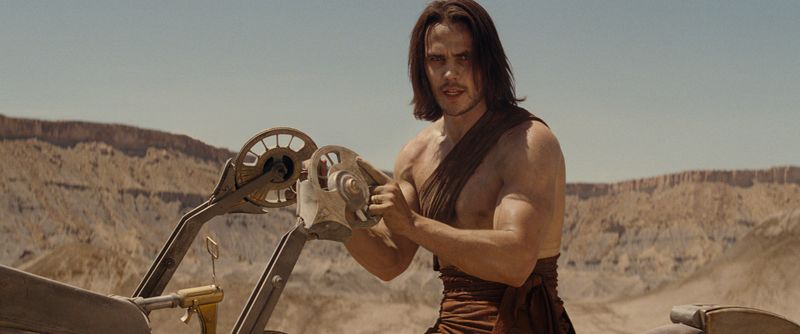
A century-old sci-fi classic crashed and burned in Disney’s hands. The studio poured $250 million into this adaptation of Edgar Rice Burroughs’ Martian adventures, only to create a confusing mess that alienated newcomers and disappointed fans.
The film’s marketing disaster didn’t help—dropping “of Mars” from the title left audiences clueless about what they were watching. Wooden performances and convoluted storytelling buried any charm from the source material.
The visual effects were genuinely impressive, but pretty pictures couldn’t save this box office bomb that lost nearly $200 million and killed hopes for what could have been an exciting franchise.
2. The Golden Compass (2007)
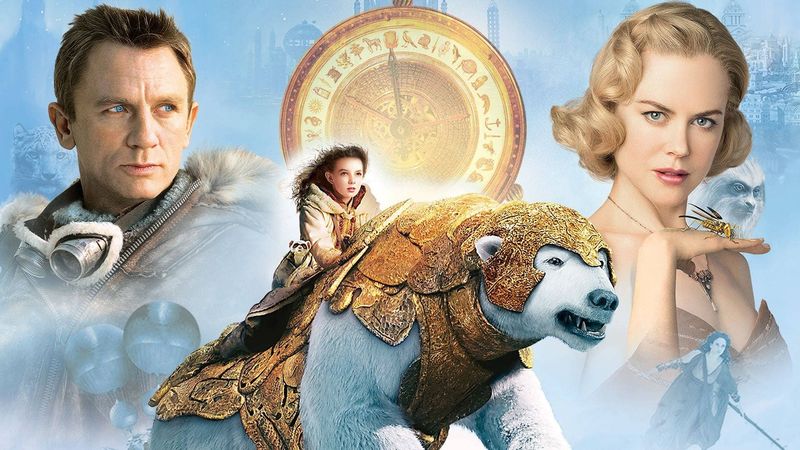
Philip Pullman’s rich, controversial novel became a toothless shadow of itself on screen. New Line Cinema hoped to replicate their Lord of the Rings success but instead delivered a sanitized version that pleased nobody.
Studio executives, fearful of religious backlash, stripped away the book’s challenging themes about organized religion and authority. The resulting film felt hollow, with Nicole Kidman and Daniel Craig unable to save a production that lacked courage.
Beautiful visual effects couldn’t compensate for storytelling that felt like reading a book with every third page torn out. This adaptation’s failure delayed a proper telling of His Dark Materials until HBO’s series years later.
3. The Time Machine (2002)
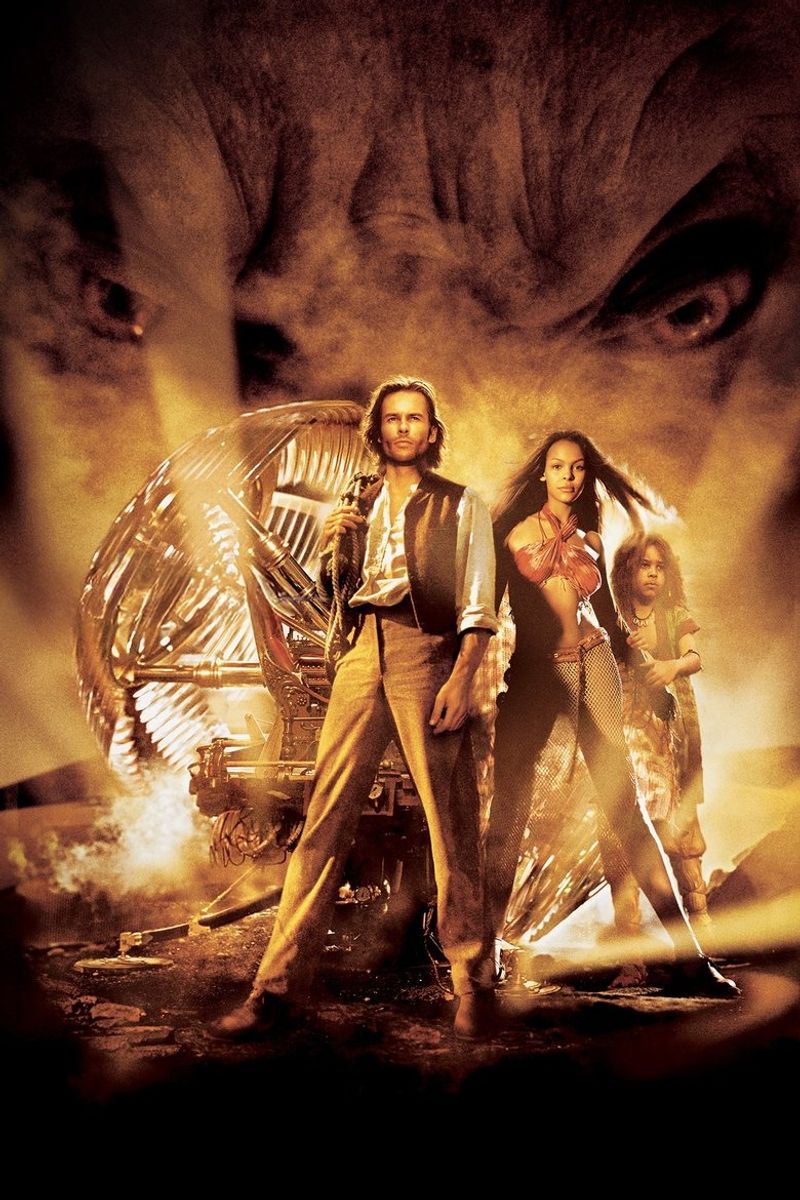
H.G. Wells’ groundbreaking science fiction novel deserved better than this jumbled remake. Director Simon Wells (the author’s great-grandson) delivered a visually interesting but intellectually empty version that missed the point of the original story.
Guy Pearce’s talents were wasted as the Time Traveler, whose motivation was awkwardly changed from scientific curiosity to personal tragedy. The thought-provoking social commentary of Wells’ novel was replaced with generic action sequences and bizarre creature designs.
The film’s middle section rushed through thousands of years of human evolution in minutes, while the final act dragged with uninspired confrontations. Even the time machine itself—beautifully designed—couldn’t save this adaptation from getting lost in time.
4. X-Men: Dark Phoenix (2019)
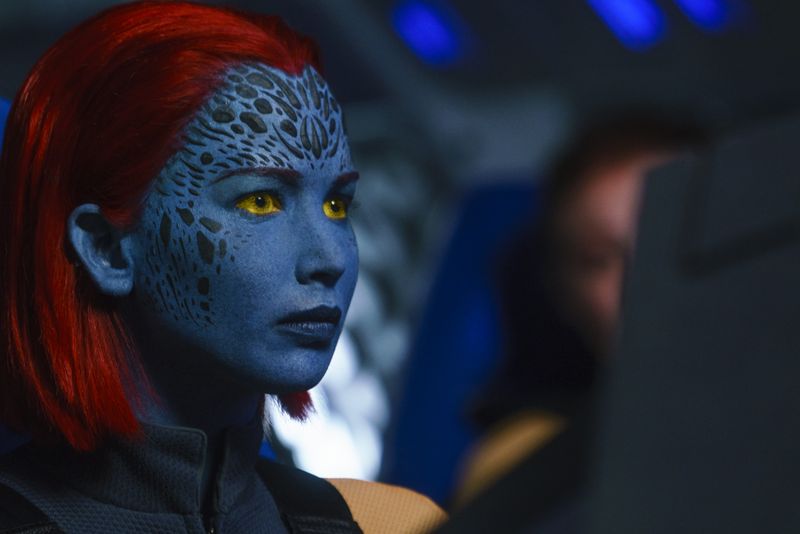
The legendary Dark Phoenix Saga from X-Men comics crashed and burned—for the second time—in this disastrous adaptation. Fox’s final X-Men film before the Disney merger became a textbook example of how not to handle beloved source material.
Sophie Turner tried her best as Jean Grey, but the script gave her little to work with beyond looking confused or angry. The cosmic elements that made the comic story epic were reduced to a forgettable alien invasion subplot with shapeshifting villains nobody cared about.
Characters who’d been developed over multiple films behaved inconsistently, while the emotional core of Jean’s transformation was lost in a muddle of reshoots and studio interference. Even Hans Zimmer’s score couldn’t elevate this franchise-killing misfire.
5. Jumper (2008)
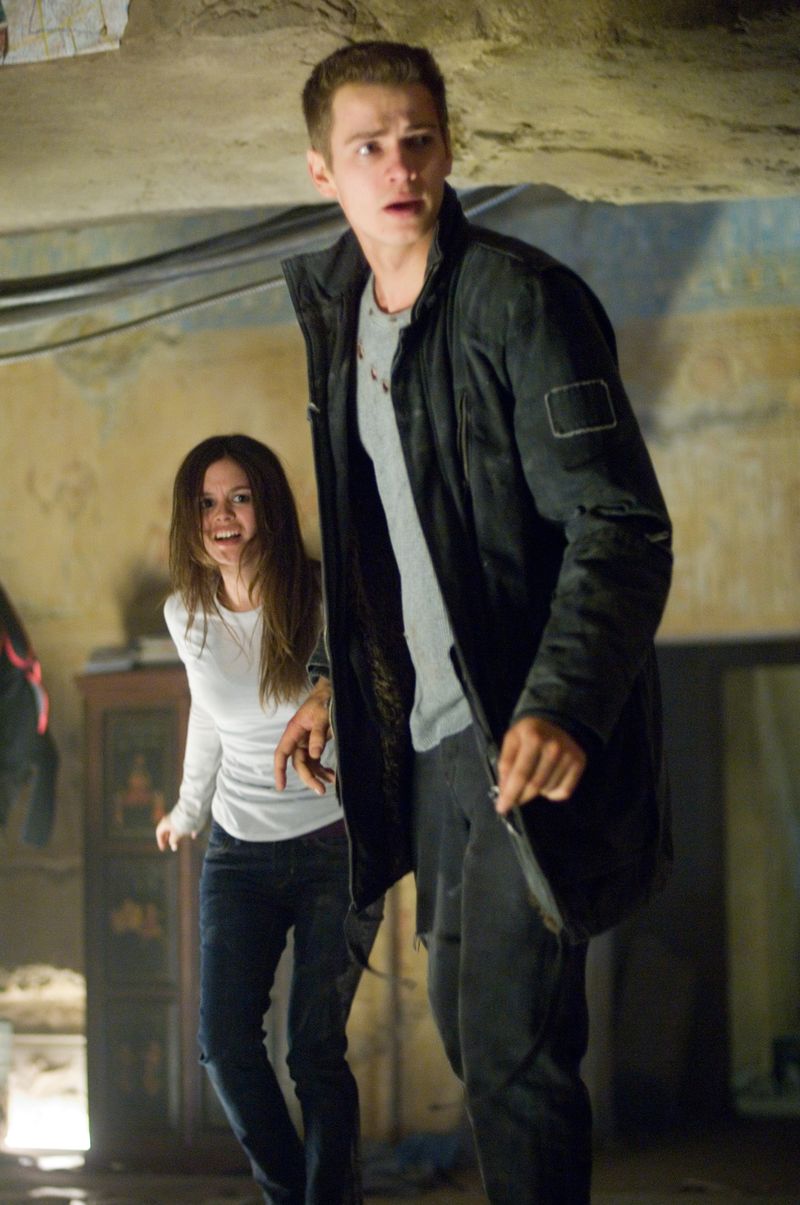
Imagine having the ability to teleport anywhere instantly. Now imagine the most boring way to use that power. That’s Jumper, which took Steven Gould’s thoughtful novel and turned it into a shallow action vehicle for Hayden Christensen.
The film’s premise had unlimited potential—a young man discovers he can teleport anywhere on Earth. Yet director Doug Liman squandered this concept on bank robberies, beach vacations, and a paper-thin conflict with religious zealots led by Samuel L. Jackson sporting a distracting white hairdo.
Character development teleported away entirely, leaving audiences with empty spectacle and a romance between Christensen and Rachel Bilson that generated zero chemistry. A fascinating sci-fi concept jumped straight into the disappointment bin.
6. The Dark Tower (2017)
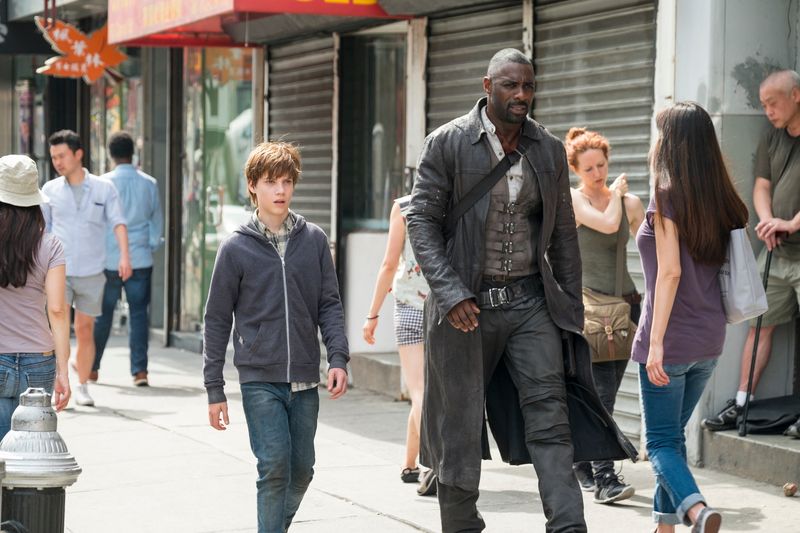
Stephen King’s magnum opus—eight books spanning multiple realities—was somehow condensed into 95 forgettable minutes. This adaptation committed the cardinal sin of being boring, wasting Idris Elba and Matthew McConaughey on a generic good-versus-evil story.
Fans who waited decades for Roland Deschain’s journey to reach screens received a watered-down version that barely resembled the source material. Newcomers were left confused by unexplained mythology and character motivations that made little sense without context.
The film tried to be both a sequel and adaptation simultaneously—a creative choice that pleased nobody. Mid-budget production values and rushed pacing further damaged what should have been an epic dark fantasy, leaving the Tower in ruins.
7. Congo (1995)
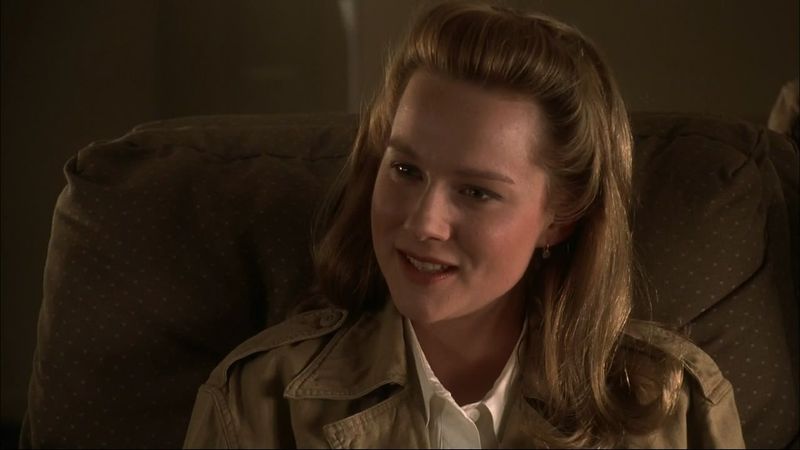
Michael Crichton’s scientific adventure novel about killer gorillas guarding diamond mines somehow became an unintentional comedy on screen. The film featured Laura Linney firing a laser at murderous apes while shouting “Put ’em on the endangered species list!”—a moment emblematic of everything wrong with this adaptation.
The talking gorilla Amy, meant to be a breakthrough in animal communication, was realized as an actor in an unconvincing costume making sign language gestures. Tim Curry’s bizarre accent as Romanian philanthropist Herkermer Homolka added another layer of absurdity.
Released after Jurassic Park’s success, Congo hoped to capitalize on Crichton’s name but missed everything that made his techno-thrillers work. Instead, audiences got a campy expedition movie that felt decades out of date.
8. Timeline (2003)
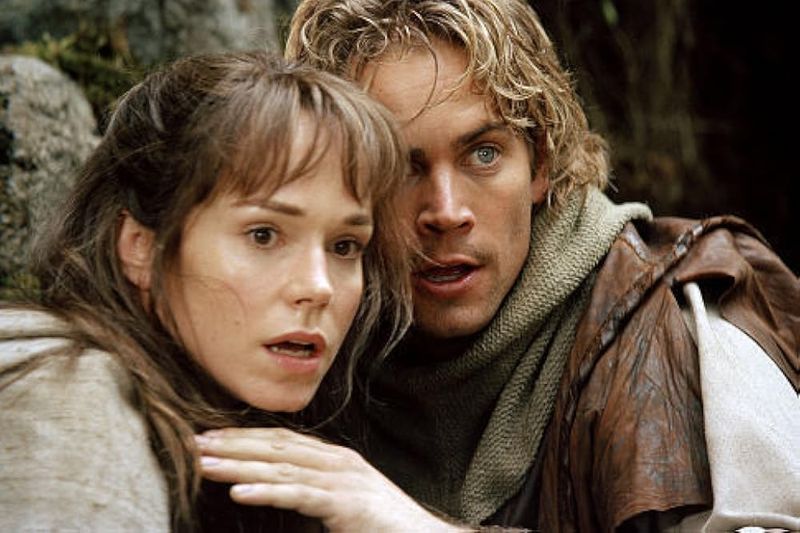
Another Michael Crichton novel butchered by Hollywood, Timeline took a fascinating premise—archaeologists traveling to medieval France—and turned it into a forgettable mess. Paul Walker, better known for Fast & Furious, looked perpetually confused as a modern scholar thrust into the 14th century.
The time travel mechanism, carefully explained in Crichton’s book as quantum technology, became magical techno-babble in the film. Medieval combat scenes lacked authenticity, with battles resembling community theater rather than the brutal warfare of the Hundred Years’ War.
Director Richard Donner, who had success with Lethal Weapon, seemed completely out of his element with historical science fiction. The film bombed so badly that Crichton reportedly hated the adaptation of his meticulously researched novel.
9. Eragon (2006)
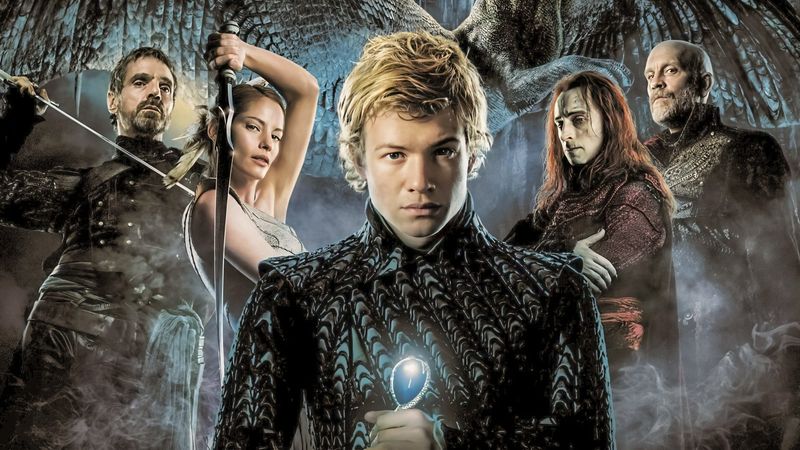
Christopher Paolini wrote his dragon-rider fantasy novel as a teenager, and ironically, the film adaptation felt like it was made by inexperienced teenagers too. Fox hoped to launch the next big fantasy franchise but instead delivered a derivative mess that borrowed the worst elements from Star Wars and Lord of the Rings.
Jeremy Irons and John Malkovich collected paychecks while delivering embarrassingly wooden performances. The dragon Saphira, meant to be majestic, looked like a flying dinosaur from a budget video game, with Rachel Weisz’s voice-over unable to salvage the poor character development.
The film changed so much from the book that a sequel became impossible, as critical plot elements for future stories were completely omitted. This dragon tale crashed and burned spectacularly.
10. Battlefield Earth (2000)
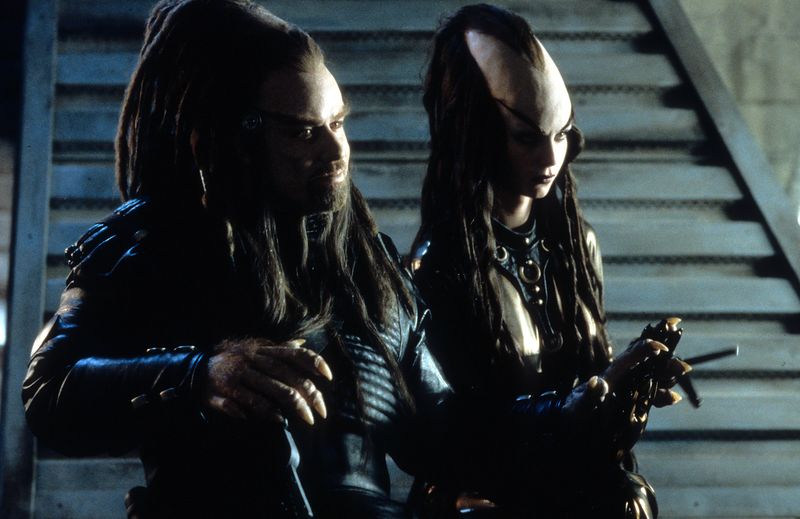
John Travolta’s passion project became one of cinema’s most notorious disasters. Based on Scientology founder L. Ron Hubbard’s novel, this adaptation features bizarre creative choices, from constant Dutch angles that make every shot tilted to Travolta’s dreadlocked alien villain cackling maniacally every few minutes.
The story of humans rebelling against alien Psychlos made little sense, with plot holes big enough to fly spaceships through. The human resistance somehow learns to fly thousand-year-old fighter jets in a week, while the supposedly superior aliens are outwitted by the most basic deceptions.
Forest Whitaker later apologized for his participation in this train wreck that swept the Razzies. Battlefield Earth remains a cautionary tale about what happens when vanity projects avoid critical feedback.
11. Dragonball Evolution (2009)
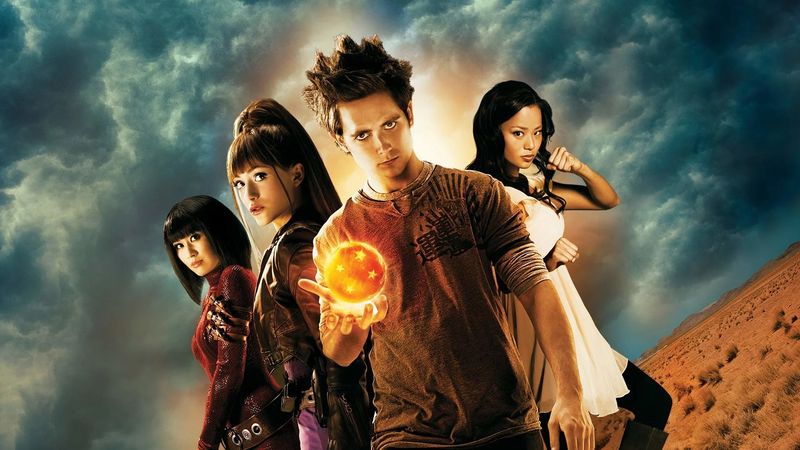
The beloved manga and anime series was disrespected in every possible way by this live-action adaptation. Characters barely resembled their animated counterparts—Goku, a powerful alien warrior, became an awkward high school student dealing with bullies and prom drama.
Master Roshi, the wise martial arts master, was reduced to a creepy old man played by Chow Yun-fat in a performance that hurt his Hollywood reputation at the time. The special effects for energy blasts and fighting sequences looked cheaper than the decades-old anime they were based on.
The screenplay fundamentally misunderstood what fans loved about Dragon Ball—the martial arts philosophy, character growth, and escalating power battles. Even the writer later apologized to fans for this adaptation that united critics and audiences in rare agreement about its awfulness.
12. Tarzan, the Ape Man (1981)
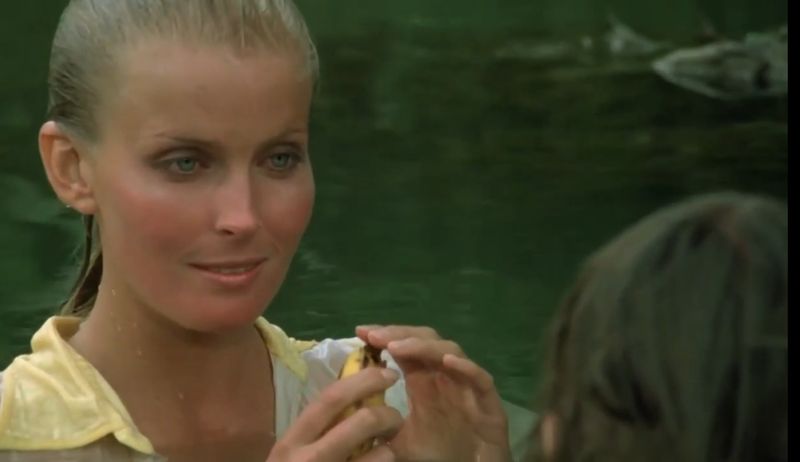
Edgar Rice Burroughs’ legendary character became a vehicle for Bo Derek in this bizarre adaptation that focused more on extended nude scenes than storytelling. The film was essentially a vanity project for Derek, produced by her husband John Derek, who seemed more interested in filming his wife bathing than honoring the source material.
Richard Harris, playing Jane’s father, appears visibly uncomfortable throughout the film. Tarzan himself, played by Miles O’Keeffe, barely speaks and functions as eye candy rather than the complex character from Burroughs’ novels.
The production values screamed low-budget, with unconvincing animal attacks and jungle settings. This adaptation completely missed the adventure, nobility, and fish-out-of-water elements that made Tarzan an enduring character for generations.

Comments
Loading…